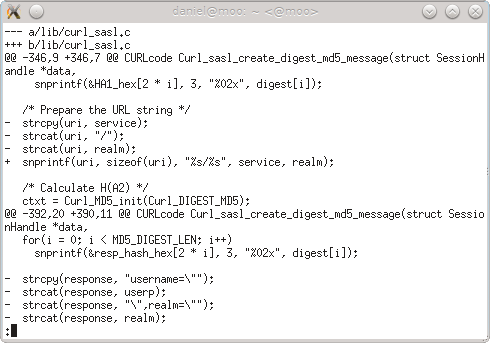On March 20 1998 the first curl release shipped – but as it was built on a previous project there was already a handful of contributors. It was then just a modest little project with but a few thousand lines of code in total.
As time has passed, the project has grown and development has been going on at a rapid speed in a never-ending cycle of releases and bug fixes. The first couple of years I didn’t keep track of every single contributor properly, but one day in 2005 I decided to go back and try to collect the names of all the helpers so far. Names that had been mentioned in the changelogs and comments etc. When looking at our history, it is therefore not really sensible to look at the numbers before that cut-off date as I didn’t keep the count and logs properly before then.
All since then, I make an effort in properly giving credit to all contributors: patch producers, bug reporters, documentation writers as well as people “just” providing good advice. I try to mention all contributors. To give credit where credit is due. In a volunteer driven project, that is after all the best compensation I can offer.
Looking back over the years it seems the pace of newcomers have been quite steady. The 437 names in 2005 have grown to 1005 in less than eight years. Roughly 70 new contributors every year or 6 per month.
Now, in February 2013 with the release of 7.29.0, we surpassed the magic 1000 named contributors limit in the project. 1000 contributors in about 5437 days. On average one new soul every 5th day over a period of almost 15 years. Fascinatingly enough, even if I count a more recent period like the last 6 years the pace is only a little faster with one new just a little faster than every 5 days!
I originally planned to present the data as a graph in this post, but since the development has been so extremely linear it turned out so boring I scrapped it! Instead I’ll show you the top-10 most common first names among curl contributors:
- 23 David
- 14 Peter
- 14 John
- 13 Michael
- 11 Eric
- 10 Mark
- 9 Tom
- 9 Tim
- 9 Daniel
- 9 Chris
The names that didn’t quite make it and that all exist 8 times in the THANKS file are Steve, Robert, Richard, James, Dan, Christian, Andrew and Andreas. As I’ve mentioned before: not that many females in there.
(Yes, I’ve ignored that possibly some Daniels go by the name of Dan, some Chrises might be Christian and so on, I’ve only counted the actual names people have used.)

